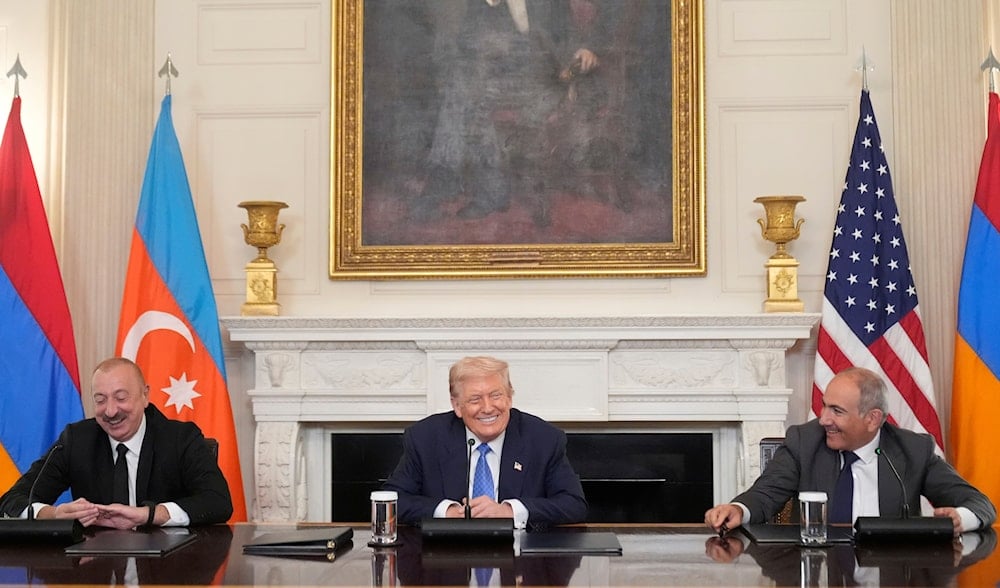Iran rejects US-backed corridor through Armenia, will defend interests
Iran opposes a US-backed corridor through Armenia linking Azerbaijan to Nakhchivan, with Ali Akbar Velayati warning it threatens South Caucasus security.
-

President Donald Trump, joined by Armenian Prime Minister Nikol Pashinyan, right, and Azerbaijan President Ilham Aliyev, speaks during a trilateral signing ceremony in the State Dining Room of the White House, Aug. 8, 2025 (AP)
Iran firmly opposes the creation of a corridor through Armenia, backed by US President Donald Trump, that would connect Azerbaijan with its Nakhchivan exclave, senior adviser to Iranian Leader Sayyed Ali Khamenei, Ali Akbar Velayati, said on Saturday.
“The equations and arrangements of this region are not confined to the two countries of Azerbaijan and Armenia. A geopolitical change in the region will relocate the borders of Iran, too. Therefore, we have the right to defend our interests most decisively,” Velayati told Iran’s Tasnim News Agency.
Velayati warned that implementing the corridor plan would endanger the security of the South Caucasus.
“Therefore, Iran has insisted that it will move in line with the security of the South Caucasus, with or without Russia. We believe that Russia is also strategically opposed to that corridor,” he added.
South Caucasus corridor and economic potential
After Armenia and Azerbaijan achieved a peace agreement, ending decades of hostilities, Donald Trump announced that Washington will sign bilateral deals "with both Countries to pursue Economic opportunities together" in the South Caucasus.
Officials told the Associated Press (AP) that the agreement could bring an end to decades of conflict and reopen strategic transportation corridors across the South Caucasus that have been closed since the early 1990s.
The prospective deal would grant the US leasing rights to develop the Zangezur corridor, which Trump’s administration plans to name the Trump Route for International Peace and Prosperity. The route would connect Azerbaijan to its Nakhchivan region, separated from the rest of the country by a 32-kilometer (20-mile) stretch of Armenia’s territory.
The corridor is considered a strategic red line for Iran, a position repeatedly expressed by its officials.
Armenia and Azerbaijan’s decades-long dispute over Nagorno-Karabakh dates back to the Soviet era, when the mostly Armenian-populated region had autonomous status within Azerbaijan. As the Soviet Union disintegrated, tensions between Armenians and Azerbaijanis escalated into full-scale war.
Read more: US proposes leasing Zangezur corridor amid Armenia-Azerbaijan tensions

 2 Min Read
2 Min Read








